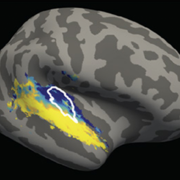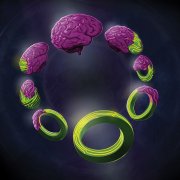October 8, 2019 - 4:00 pm
MIT 46-5165
Mengmi Zhang and Jie Zheng, Kreiman Lab
October 2, 2019 - 11:00 am
Singleton Auditorium
Jack Hidary, Alphabet X, formerly Google X
Abstract: Jack Hidary will take us through the nascent, but promising field of quantum computing and his new book, Quantum Computing: An Applied Approach
Bio: Jack D. Hidary is a research scientist in quantum computing and in AI at Alphabet X, formerly Google X. He and his group develop and...
Bio: Jack D. Hidary is a research scientist in quantum computing and in AI at Alphabet X, formerly Google X. He and his group develop and...
October 1, 2019 - 4:00 pm
MIT 46-5165
Andrzej Banburski, Poggio Lab
, Title: Biologically-inspired defenses against adversarial attacks
Abstract: Adversarial examples are a...
September 25, 2019 - 9:30 am
Brain and cognitive sciences professor studies how the human mind is able to learn so rapidly.
Anne Trafton | MIT News Office
September 25, 2019
Excerpt:
Josh Tenenbaum, a professor in MIT’s Department of Brain and Cognitive Sciences who studies human cognition, has been named a recipient of a 2019 MacArthur Fellowship.
The fellowships, often referred to as “genius grants,” come with a five-year, $625,000 prize, which recipients are free to use...
September 24, 2019 - 4:00 pm
MIT 46-5165
Kohitij Kar, DiCarlo Lab
, Title: Probing the functional role of by-pass (skip) connections in the primate ventral stream.
Brief...
September 19, 2019 - 11:15 am
How people interpret musical notes depends on the types of music they have listened to, researchers find.
Anne Trafton | MIT News Office
People who are accustomed to listening to Western music, which is based on a system of notes organized in octaves, can usually perceive the similarity between notes that are same but played in different registers — say, high C and middle C. However, a longstanding question is whether this a universal phenomenon...
September 17, 2019 - 4:00 pm
MIT Building 46-3002 (Singleton Auditorium)
Maia Fraser, Assistant Professor University of Ottawa
Abstract: Hierarchical learning is found widely in biological organisms. There are several compelling arguments for advantages of this structure. Modularity (reusable components) and function approximation are two where theoretical support is readily available. Other, more statistical, arguments...
September 10, 2019 - 11:30 am
By Chrissy Sexton
Earth.com staff writer
In a new study published by the Society for Research in Child Development, experts have found that children are taking notice of how adults face challenges and the amount of effort they are willing to put into reaching their goals.
The research suggests that these actions, along with the words of encouragement adults may use, have a significant effect on persistence among children.
“Our work shows that...
September 9, 2019 - 10:15 am
Study reveals brain regions that respond differently to the presence of background noise, suggesting the brain progressively hones in on and isolates sounds.
by Sabbi Lall | McGovern Institute for Brain Research
In a busy coffee shop, our eardrums are inundated with sound waves — people chatting, the clatter of cups, music playing — yet our brains somehow manage to untangle relevant sounds, like a barista announcing that our “coffee is ready,”...
August 30, 2019 - 10:00 am
Marine Biological Laboratories
10am-10:30am State of CBMM
Presented by Tomaso Poggio
10:30am-11am CBMM beyond 2023
Presented by Tomaso Poggio
11am-11:15am Learning Hub review...
Presented by Tomaso Poggio
10:30am-11am CBMM beyond 2023
Presented by Tomaso Poggio
11am-11:15am Learning Hub review...
August 21, 2019 - 10:15 am
We view ourselves and others as causal agents who pursue goals and act efficiently to make things happen, but where do these intuitions come from? In a new paper funded by the Center for Brains, Minds and Machines and published in PNAS, Harvard University researchers and co-authors Shari Liu, Neon Brooks, and Elizabeth Spelke show that three-month-old human infants, who do not yet reach for objects, nevertheless understand that when other people...
July 24, 2019 - 9:45 am
Bringing together artificial intelligence and neuroscience promises to yield benefits for both fields.
Chethan Pandarinath wants to enable people with paralysed limbs to reach out and grasp with a robotic arm as naturally as they would their own. To help him meet this goal, he has collected recordings of brain activity in people with paralysis. His hope, which is shared by many other researchers, is that he will be able to identify the patterns...
July 21, 2019 - 9:00 am
“We have all heard that Patrick died yesterday in his sleep. I am writing with tears in my eyes. This is a sad day for me and also for MIT and for CBMM.
For me, Patrick and MIT have always been together. When I arrived at MIT from Germany in 1981, he was the director of the AI Lab where my office was. In the last decade, Patrick was for me one of the most important people at MIT, somebody I always trusted and relied upon for advice and...
July 18, 2019 - 4:00 pm
MIT 46-5165
Gemma Roig
Title:
Task-specific Vision DNN Models and Their Relation for Explaining Different Areas of the Visual Cortex
Abstract:
Deep Neural Networks (DNNs) are state-of-the-art models for many vision tasks. We propose an approach to assess the relationship between visual tasks and their task-specific...
Task-specific Vision DNN Models and Their Relation for Explaining Different Areas of the Visual Cortex
Abstract:
Deep Neural Networks (DNNs) are state-of-the-art models for many vision tasks. We propose an approach to assess the relationship between visual tasks and their task-specific...
June 17, 2019 - 9:15 am
Learning to code involves recognizing how to structure a program, and how to fill in every last detail correctly. No wonder it can be so frustrating.
A new program-writing AI, SketchAdapt, offers a way out. Trained on tens of thousands of program examples, SketchAdapt learns how to compose short, high-level programs, while letting a second set of algorithms find the right sub-programs to fill in the details. Unlike similar approaches for...












